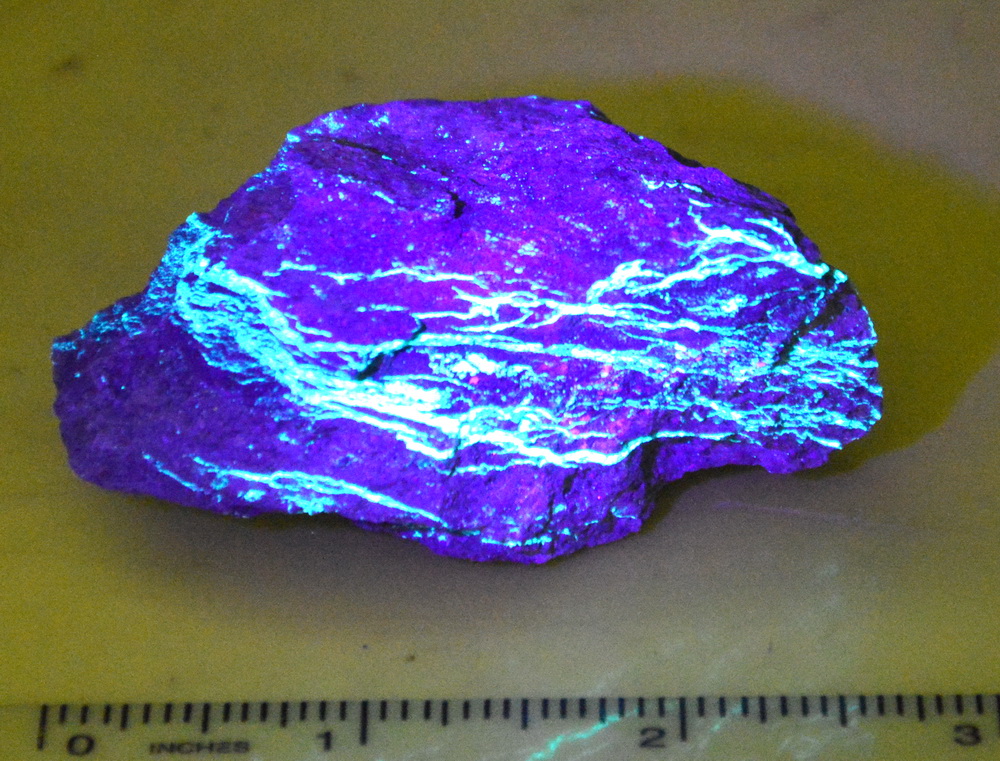 This is Andersonite which is fascinating on many levels.
This is Andersonite which is fascinating on many levels.
“Continue reading” to find out why and see other minerals that show up under UV as well.
Under less intensely saturating UV then it is simply a bright green.
Andersonite is not a true mineral as it is the result of a man made activity, namely Uranium mining. This specimen comes from the Atom King Mine in Utah.
It is a hydrated sodium calcium uranyl carbonate and is found as an efflorescent crust in the dry air of uranium mines and not as a free mineral. It is intensely fluorescent.
As it is Uranium containing, I checked the radioactivity on my Geiger counter and found it to be surprisingly “hot”.
 Its radioactivity count was 69,000 compared to a background of around 50. But something was happening to the background radiation. It had drifted high then low. It appears the gamma radiation had made my Geiger counter itself a bit radioactive The half life of the radioactive decay was about an hour. After leaving it off overnight the counts had returned to baseline.
Its radioactivity count was 69,000 compared to a background of around 50. But something was happening to the background radiation. It had drifted high then low. It appears the gamma radiation had made my Geiger counter itself a bit radioactive The half life of the radioactive decay was about an hour. After leaving it off overnight the counts had returned to baseline.
Of course not all fluorescent minerals are radioactive minerals.
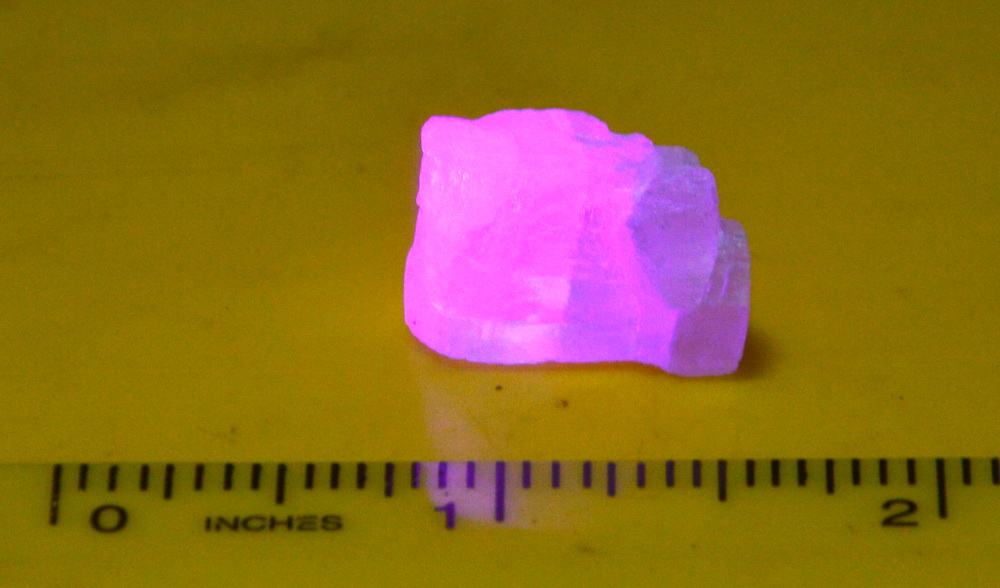 This is calcite which is a stable polymorph of calcium carbonate (CaCO3). It fluoresces pink under long wave UV.
This is calcite which is a stable polymorph of calcium carbonate (CaCO3). It fluoresces pink under long wave UV.
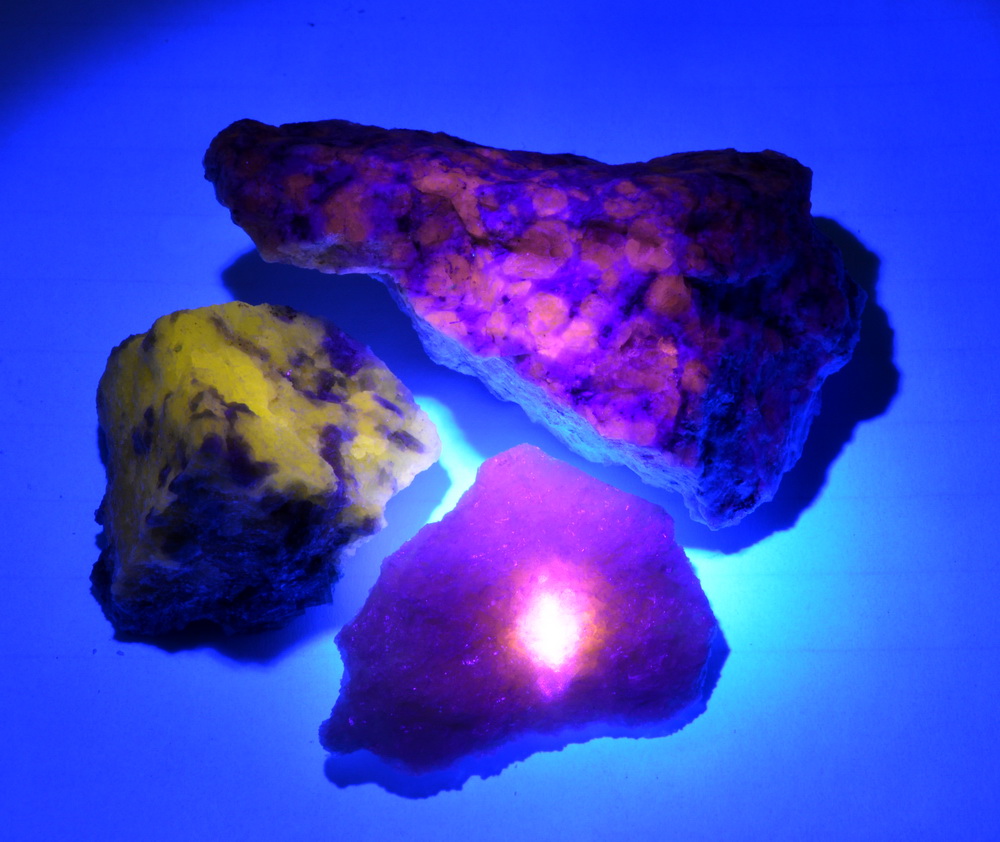
More fluorescent minerals. Fluororescent Wernerite (yellow), Sodalite (mottled orange) and Tirodite (pink) under long wave UV. The blue background is white paper which has “whiteners” in it which are fluorescent compounds.
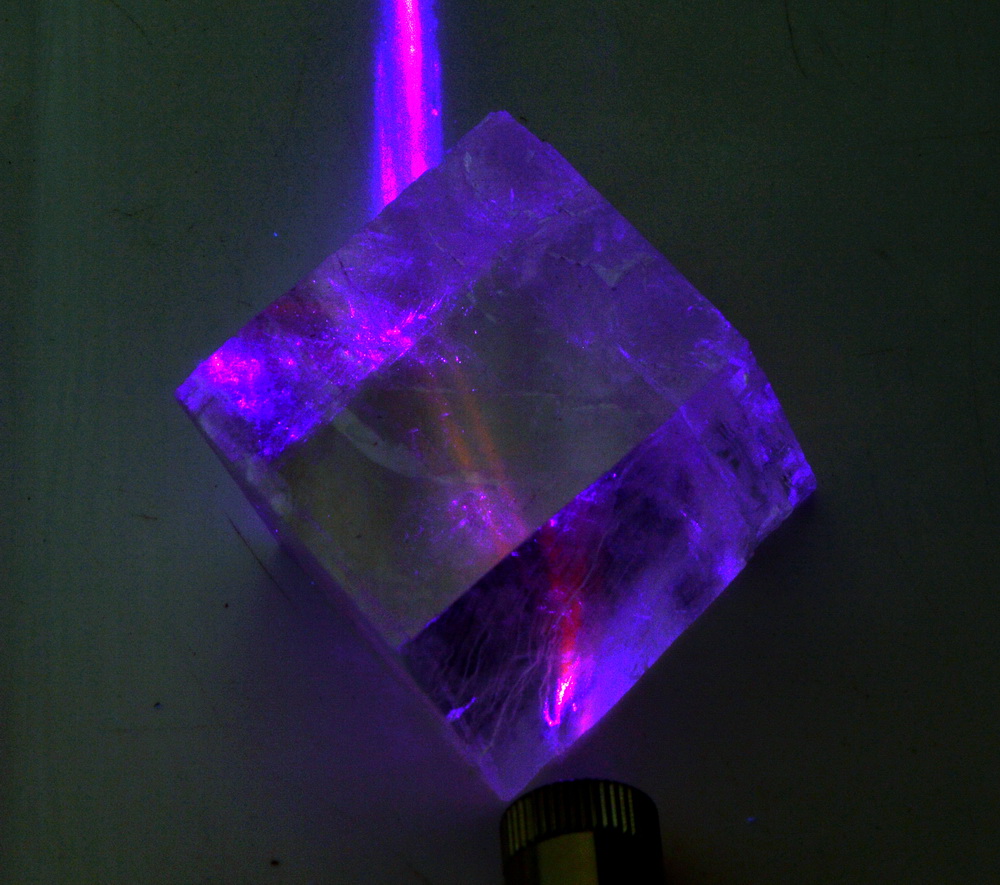 A calcite crystal under violet UV laser. Note the double orange tracks of fluorescent birefringence within the crystal.
A calcite crystal under violet UV laser. Note the double orange tracks of fluorescent birefringence within the crystal.
Related pages
Try something else
External links
Andersonite – Wikipedia
Calcite – Wikipedia
Photo Date: June 23, 2013
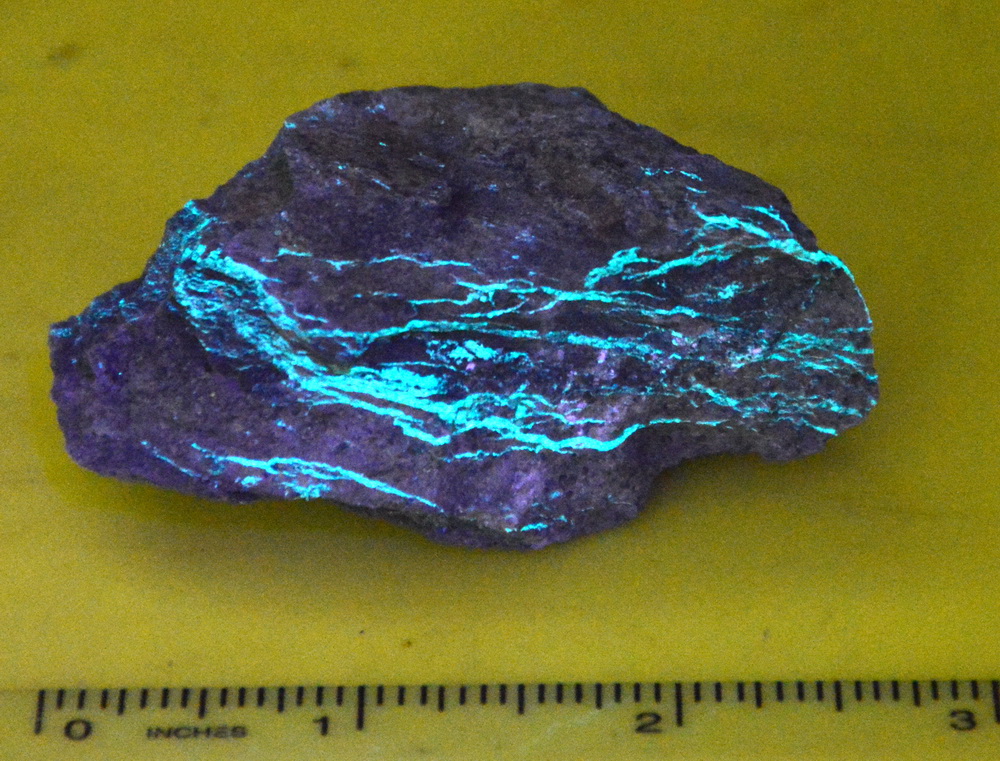
 Mineral sands radioactivity
Mineral sands radioactivity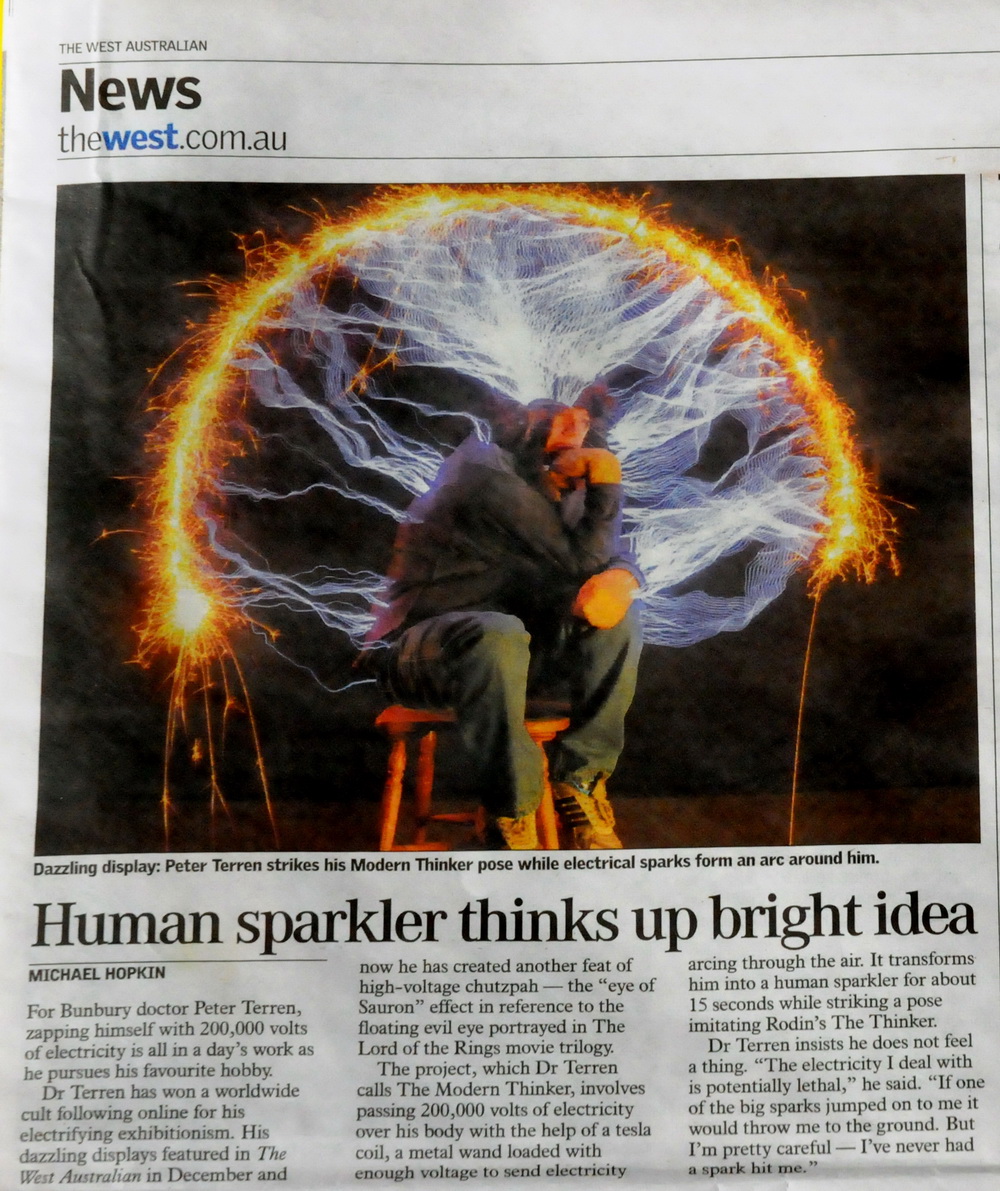 Newspaper
Newspaper